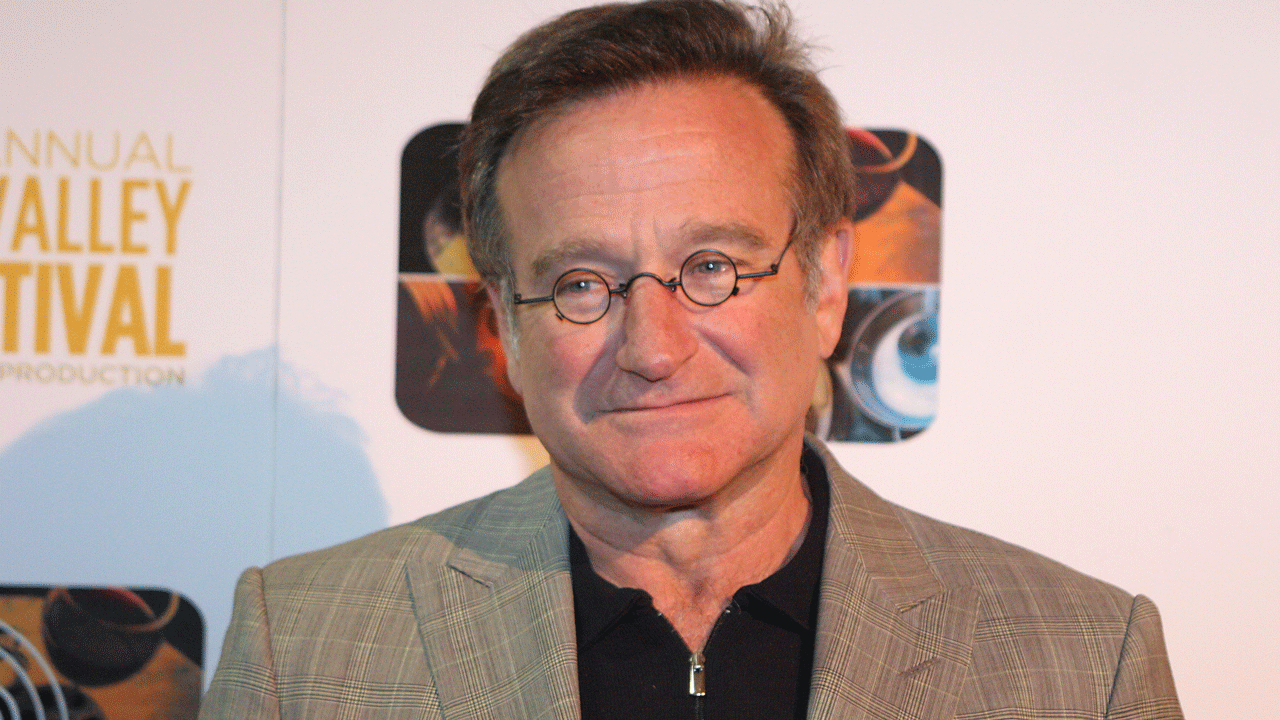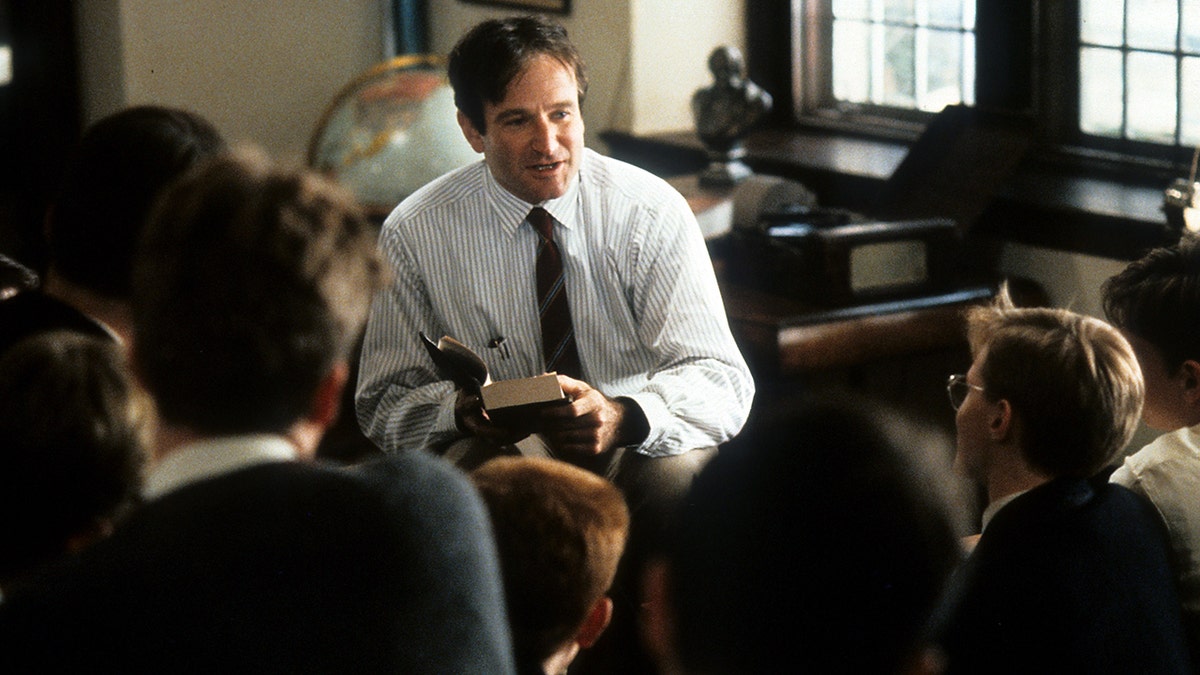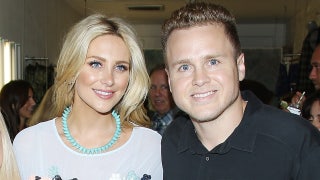Fox News Flash top entertainment headlines for July 21
Fox News Flash top entertainment and celebrity headlines are here. Check out what's clicking today in entertainment.
The son of Robin Williams is speaking out about his father’s psychological struggles as well as his own in the wake of the legendary comedian’s death in a new podcast interview.
Zak Williams, 38, sat down with writer and host Max Lugavere for a long heart-to-heart during the latest installment of his podcast, "The Genius Life," which streams new episodes every Wednesday.
Their candid conversation included their mutual struggles with depression, anxiety and the pain of watching a loved one be consumed by a debilitating neurodegenerative disease: dementia with Lewy bodies. Both Lugavere and Williams have watched a parent suffer through the "frustrating" illness — the pain of which has left a lasting impact on both men.
It was a poignant conversation to debut on the day that would have been Robin’s 70th birthday, on July 21.
ROBIN WILLIAMS' WIDOW SAYS HE HAD AN ‘INVISIBLE MONSTER’ CHASING HIM FOR MONTHS BEFORE DEATH

Robin Williams' son Zak Williams described his ‘frustrating’ experience watching his father struggle with dementia before his suicide in 2014. (Photo by Albert Chau/FilmMagic)
"What I saw was frustration," said Williams of his father’s diagnosis and misdiagnosis.
About two years before his death by suicide in 2014, doctors told Williams that he had Parkinson’s disease, a disorder of the central nervous system that affects movement, causing its signature tremors.
But an autopsy would later reveal that Robin and his medical team had treated the wrong illness. "What he was going through didn’t match one to one [with] many Parkinson’s patients’ experience," said the eldest son of Robin and his first wife, Valerie Velardi.
Williams believes his father’s misdiagnosis likely exacerbated the emotional toll that dementia takes on patients. In the years Robin lived without knowing the full scope of his illness, his son observed his struggles to focus and the subsequent "challenges performing his craft," contributing to the actors’ anxiety and depression prior to his death.
"Lightning quick recall — that was his signature [on stage]," he said, referring to the impact of dementia on patients.
Both dementia with Lewy bodies [DLB] and Parkinson’s dementia disease [PDD] are subtypes of dementia, marked by a buildup of proteins that clump together in neurons of the brain, inhibiting both the central and autonomic nervous systems.
However, DLB distinguishes itself from the other subtype with symptoms including a notable decline in cognitive abilities, and struggles with everyday mental activities such as planning, problem-solving, focusing and staying alert, according to the Lewy Body Dementia Association. Hallucinations, sleep-walking, mood swings and physical rigidity are also characteristic of DLB.

Robin Williams teaching a class in a scene from the film 'Dead Poets Society', 1989. (Photo by Touchstone Pictures/Getty Images)
Furthermore, the development of PDD is not guaranteed in all Parkinson’s patients initially — adding to Robin’s confusion in the years prior two his death.
"It was a period for him of intense searching and frustration," Williams said. "It’s just devastating."
That devastation took its toll in the aftermath of his father’s passing — in the form of post-traumatic stress disorder, alcoholism and depression: "I was self-medicating through the trauma using alcohol."
His waning health, which included bouts with psychosis, ultimately galvanized Williams to seek help — by helping others. "I was just sick and tired of trying to treat myself using harmful means," said Williams, who transformed his negative experience into a positive one through advocacy.
"What is it I need to not only take care of myself, but to show up for others?," he posed to host Max Lugavere, who noted that men, in particular, are four times more likely to die by suicide compared to women, according to studies.
CLICK HERE TO SIGN UP FOR THE ENTERTAINMENT NEWSLETTER
"I think many [men] feel isolated, many don’t have the outlets needed," said the father of two, who found strength in a 12-step program and other forms of group therapy. He sympathizes especially with those who lack access to mental health resources, due to cost or distance. Telehealth is working to extend access, he pointed out, but encourages in-person connection in tandem.
Especially in men, for whom the stigma of seeking mental health treatment is much higher, men’s groups — at churches, bars or wherever else they find shared interest — can be a powerful source of inspiration and support. Gender-exclusive men’s groups, too, "enables them to focus on issues at hand without interpersonal gender dynamics," Williams added.
The activist and entrepreneur, who founded PYM, a mental wellness company that specializes in "neuro-nutrition." It was his battle with alcoholism that prompted his exploration of the subject, leading him to learn more about how nutrient deficiency impacts the brain and psychological health, such as the neurotransmitter Gamma-aminobutyric acid (GABA), supplements of which made all the difference in his recovery. "It was like night and day," Williams said.
Low levels of GABA in the brain have been associated with increased levels of anxiety and mood disorders. The amino acid has been nicknamed "nature’s Valium," by some, according to Lugavere.
CLICK HERE TO DOWNLOAD THE FOX NEWS APP
PYM’s products and other forms of supplementation are "not cures," Williams insisted and should be used in tandem with a healthy diet, exercise and therapy, for some. "They don’t solve for anxiety, but they try to address the root fixes."
His goal as an advocate is to encourage people to need to think more about mental health in terms of physiological health: "People need to understand what they need for their bodies."
If you or someone you know is having thoughts of suicide, please contact the National Suicide Prevention Lifeline at 1-800-273-TALK (8255).














































